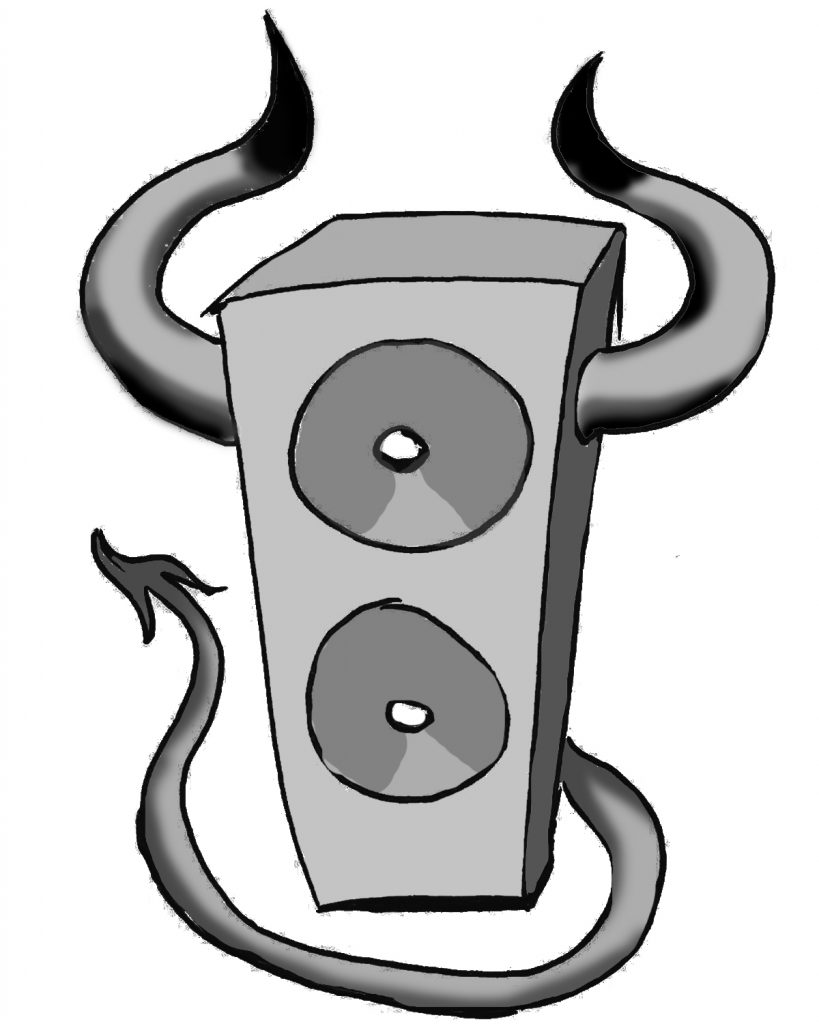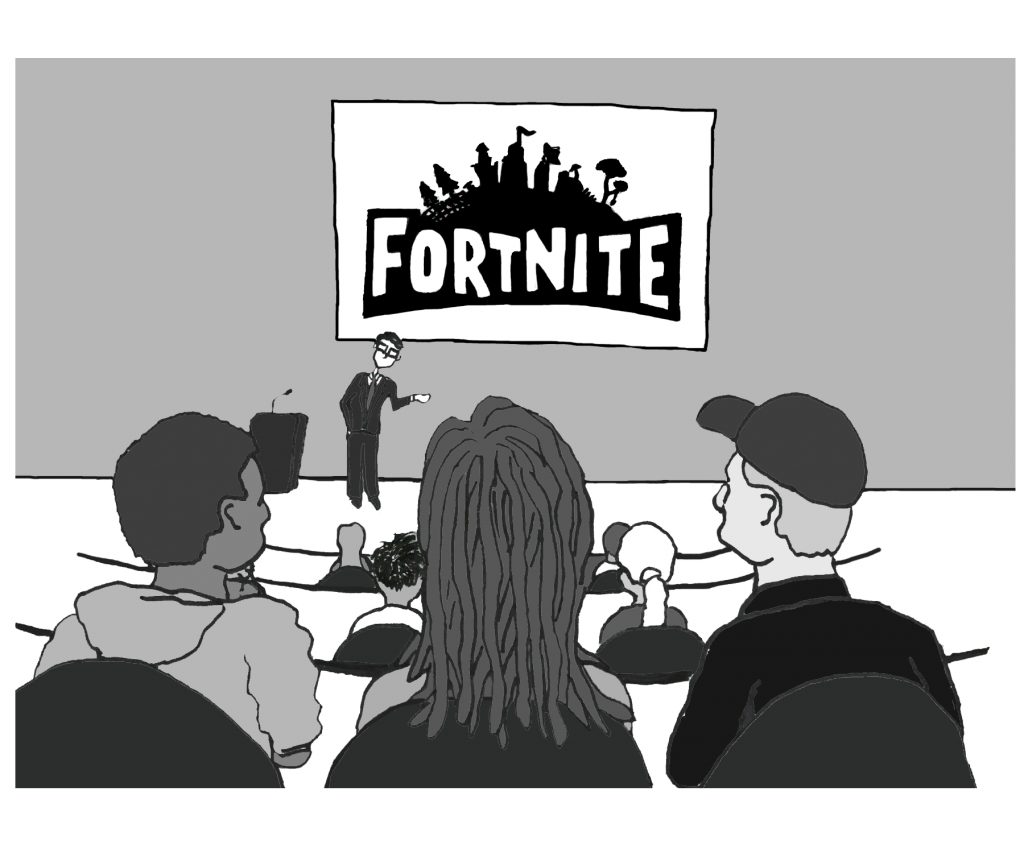By Aoife Branco
“‘You need to learn to manage my expectations. I am not a patient man. If you say you are going to contact me when you get off work, then you should have the decency to do so.’… Will he ever give me a break? He is suffocating me. With a deep dread uncurling in my stomach… He’d probably like to beat the seven shades of shit out of me. The thought is depressing.”
“‘Alaska is very cold and no place to run. I would find you. I can track your cell phone, remember?’”
Nope, this is not from an episode of “Criminal Minds” or “Law and Order: SVU.” But it should be.
These quotations are found in the ever increasingly popular novel “Fifty Shades of Grey.” With the release of E.L. James’ book “50 Shades of Grey” as a film adaptation over the Valentine’s weekend, the relationship and characters pose a serious problem that most people, including myself, didn’t realize while reading the novel.
In order to fully grasp the gravity of this situation, the true culture and lifestyle of BDSM has to be fully understood.
BDSM is a catch-all phrase used to describe an interest in a number of related patterns of human sexual behavior including sadomasochism, power exchange or bondage. The major sub-groupings are described in the abbreviation “BDSM” itself: bondage & discipline (B&D), domination & submission (D&S, DS, D/S), and sadism & masochism (or sadomasochism) (S&M, SM). BDSM relationships are based firmly on trust between the dominant and the submissive, the slave and the master, etc. The whole system of trust is based upon three things: consent, sanity and safety. These things bring in the concept of a “safe word” or word serving as a pre-arranged and unambiguous signal to end an activity, such as between a dominant and submissive sexual couple. If one of these is absent or the “safe word” is ignored, BDSM culture has been violated and trust has been violated.
Throughout James’ novel, these basic tenants of BDSM are violated. And the problem here is that “Fifty Shades” casually associates this kinky form of sex with violence but without the context of fully understanding how a true BDSM relationships work. In the novel, Anastasia, also referred to as Ana, sometimes says yes to sex that she is uncomfortable with because she is too shy to speak her mind, or because she is afraid of losing the infatuation of Christian Grey. She also gives consent when he wants to inflict pain, yet that does not prevent her from being physically harmed nor does it prevent her from being upset after being harmed.
Her fear of Christian’s wrath and desire to please him also prevents her from speaking out about how uncomfortable and afraid she was about the whole relationship. There is even a point when Christian completely ignores the safe word the two had agreed upon. This violates BDSM culture. This perpetuates rape culture. This romanticizes violence and abuse.
As these images of Ana being ravaged by Christian become the new normal for what’s considered erotic, they raise questions about what it means to actually “consent” to sex. Clearly, consent is necessary; but is it sufficient? Can a general public so captivated by a lifestyle they know so little about show the differences between abuse and consensual domination?
This is a troubling fantasy for an American culture in which one in four women will be raped in their lifetime. What’s more, according to the CDC, 40 percent of those rapes will happen to women between the ages of 18 and 24. This is even more troubling when you consider the overwhelmingly casual attitude many people have towards rape. Consent is not the absence of a “no,” but the presence of a “yes.” Period.
But to be honest, it’s not just his conduct in the bedroom that is troubling here. His violent and aggressive jealousy toward Ana, her daily conduct, and interactions with other males is disturbing; going so far as to intimidate and isolate Ana wanting her all to himself. This is abusive. While it may not be physically evident, the mental damage this kind of relationship and behavior can cause lasting and crippling damage. “Controlling, jealous, threatened, control freak, ignored our safe words, manipulative, stalker, threatening” All words Anna herself uses to describe Christian at some point in the novel. How can you ignore that and possibly say that this is okay? In any context? It is important to know and recognize these signs of abuse within a relationship.
Too many people are quick to brush this off or ignore this kind of criticism stating that “it’s just fantasy” or that it’s fiction so that somehow makes it separate from the world we live in. But truth be told, every “story” is reality for someone. Framing this story as a romance was the worst thing that could have been done. Whether E.L. James realized what she was doing as she wrote the novel or not is not the issue here. If we don’t have a discussion about the novel and the relationship it perpetuates in the context of what it means for domestic violence, then we are basically saying that what the book and film depicts are okay.
Horrific threats are portrayed as flirtatious fun; force ends up being acceptable because what starts as terror inevitably ends in Ana finding pleasure. In the world of this novel coercion is accepted, manipulation is celebrated, and consent is ignored. By setting this movie up as romance, it sends the toxic message that in the end you can change your abuser. It tells victims that their experiences are somehow invalid and that, like Anastasia, they should learn to accept and enjoy their situation. The message here is pretty clear: by turning these experiences around and marketing them as “romance” it is effectively silencing the true horrors experienced by millions of victims of abuse.
Don’t let Hollywood and a pair of fur lined handcuffs fool you into thinking that you can change the handsome, brooding man with anger and jealousy into something he is not. No matter how beautiful, shy, and good hearted you are. Stand up for who you are, what you want, and never, ever, EVER mistake abuse and violence for love.
But to be honest, it’s not just his conduct in the bedroom that is troubling here. His violent and aggressive jealousy toward Ana, her daily conduct, and interactions with other males is disturbing; going so far as to intimidate and isolate Ana wanting her all to himself. This is abusive. While it may not be physically evident, the mental damage this kind of relationship and behavior can cause lasting and crippling damage. “Controlling, jealous, threatened, control freak, ignored our safe words, manipulative, stalker, threatening” All words Anna herself uses to describe Christian at some point in the novel. How can you ignore that and possibly say that this is okay? In any context? It is important to know and recognize these signs of abuse within a relationship.
Too many people are quick to brush this off or ignore this kind of criticism stating that “it’s just fantasy” or that it’s fiction so that somehow makes it separate from the world we live in. But truth be told, every “story” is reality for someone. Framing this story as a romance was the worst thing that could have been done. Whether E.L. James realized what she was doing as she wrote the novel or not is not the issue here. If we don’t have a discussion about the novel and the relationship it perpetuates in the context of what it means for domestic violence, then we are basically saying that what the book and film depicts are ok.
Horrific threats are portrayed as flirtatious fun; force ends up being acceptable because what starts as terror inevitably ends in Ana finding pleasure. In the world of this novel coercion is accepted, manipulation is celebrated, and consent is ignored. By setting this movie up as romance, it sends the toxic message that in the end you can change your abuser. It tells victims that their experiences are somehow invalid and that, like Anastasia, they should learn to accept and enjoy their situation. The message here is pretty clear: by turning these experiences around and marketing them as “romance” it is effectively silencing the true horrors experienced by millions of victims of abuse.
Don’t let Hollywood and a pair of fur lined handcuffs fool you into thinking that you can change the handsome, brooding man with anger and jealousy into something he is not. No matter how beautiful, shy, and good hearted you are. Stand up for who you are, what you want, and never, ever, EVER mistake abuse and violence for love.

